SubSuperior
Pat Phillips
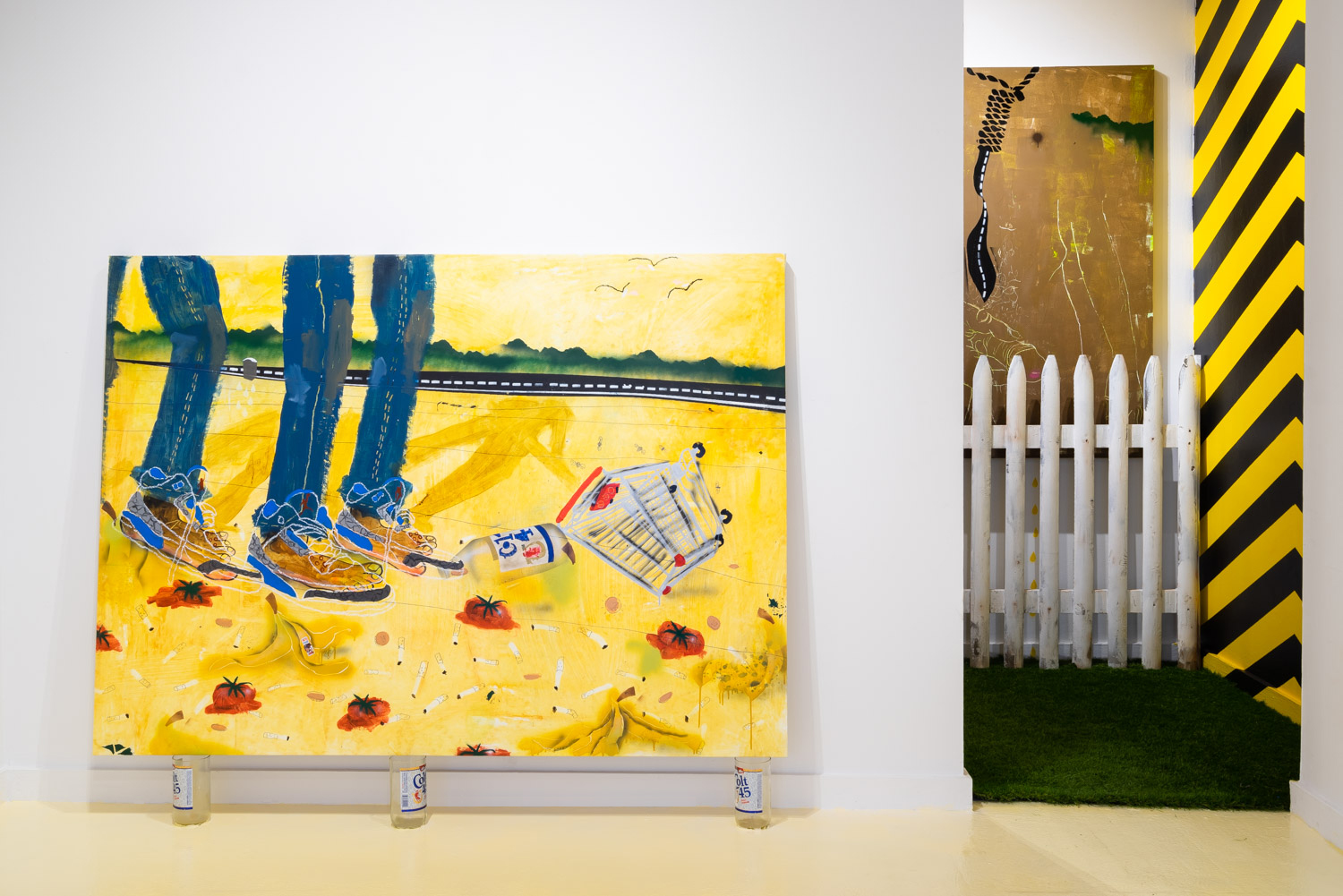
Pat Phillips
In the Desert They Don’t
Remember Your Name, 2018
acrylic, pencil, oil pastel
reflective glass beads, airbrush aerosol paint on canvas
51 × 70 in
Installation in Catinca Tabacaru, NY
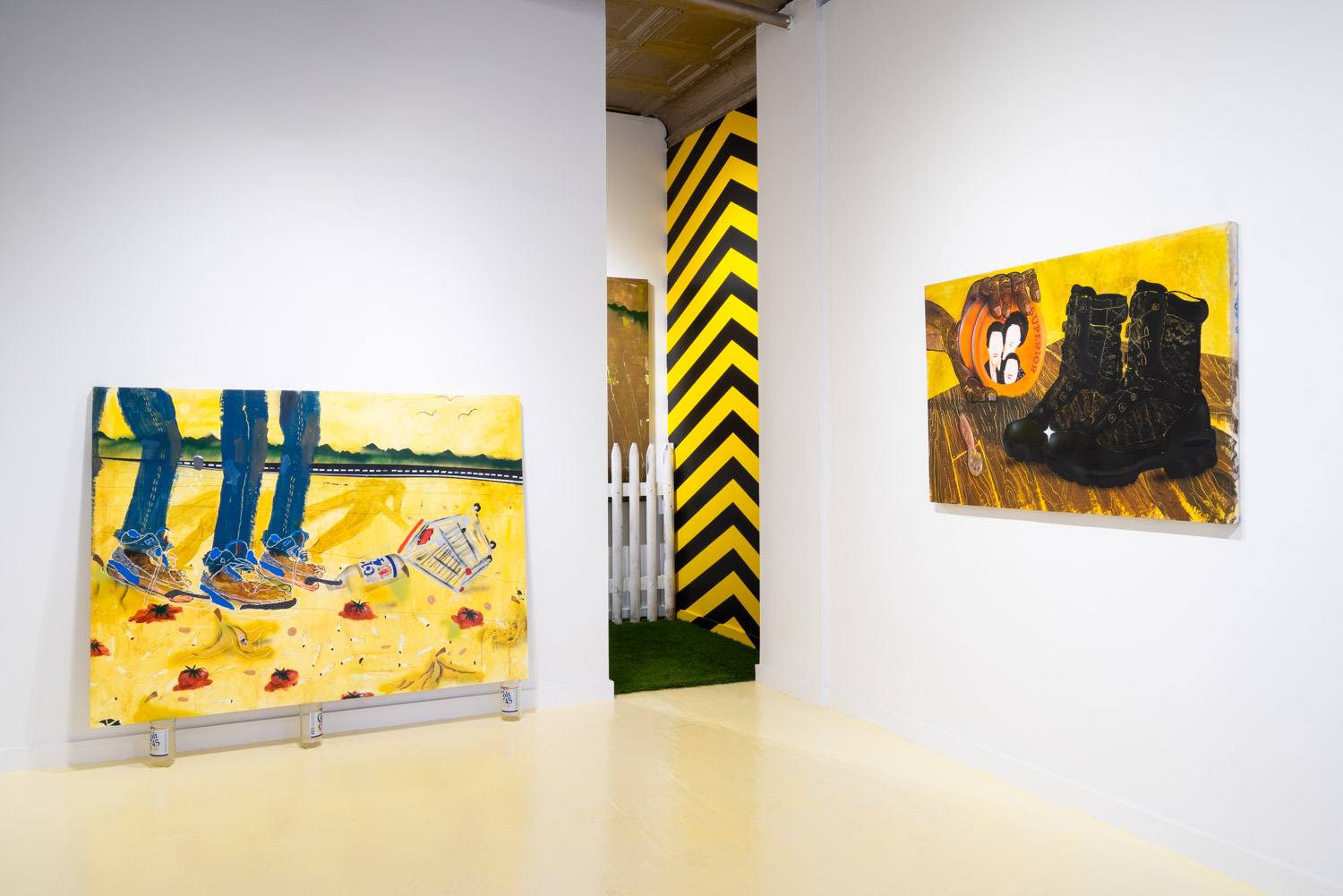
Pat Phillips
SubSuperior, 2019
Installation in Catinca Tabacaru, NY
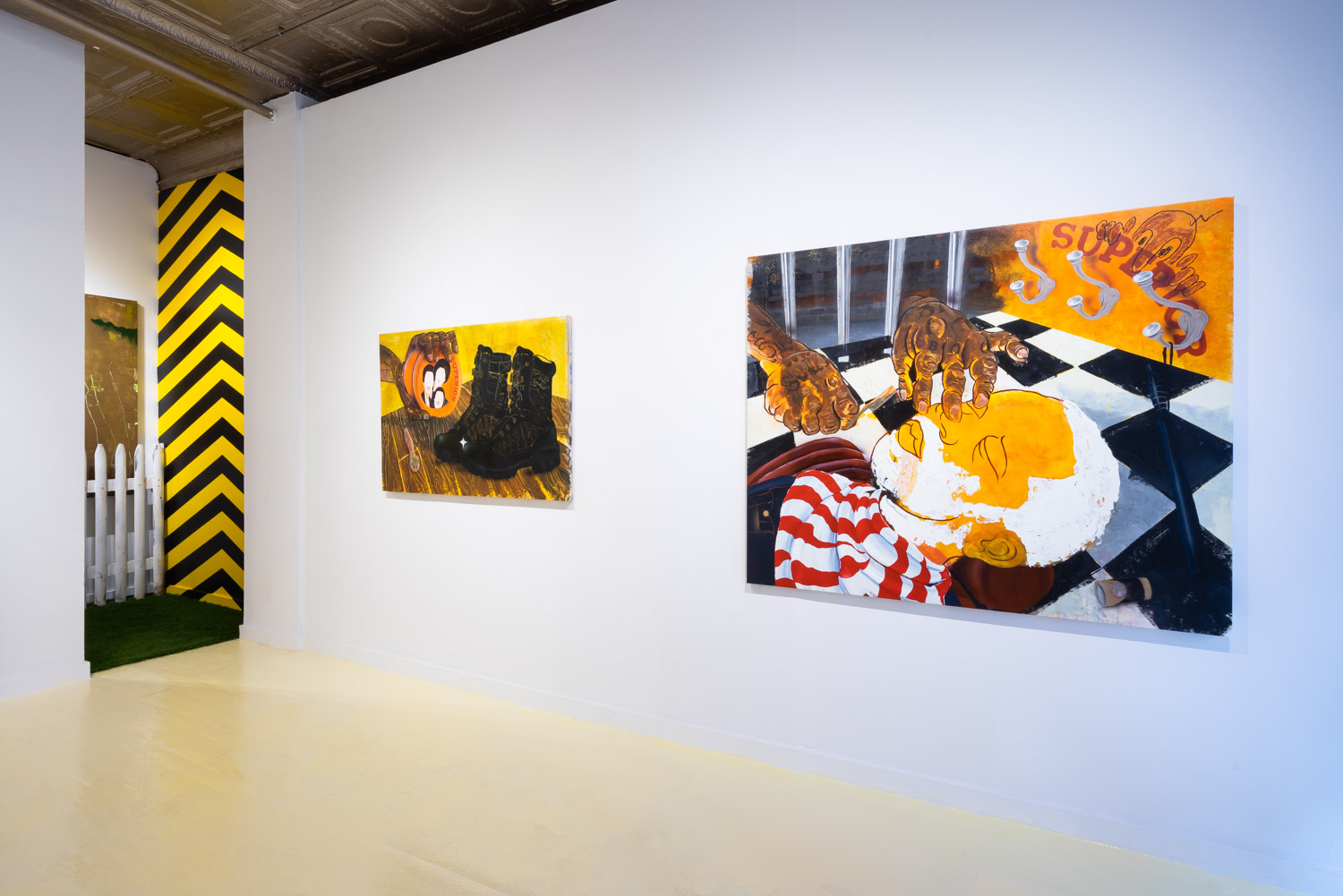
Pat Phillips
SubSuperior, 2019
Installation in Catinca Tabacaru, NY
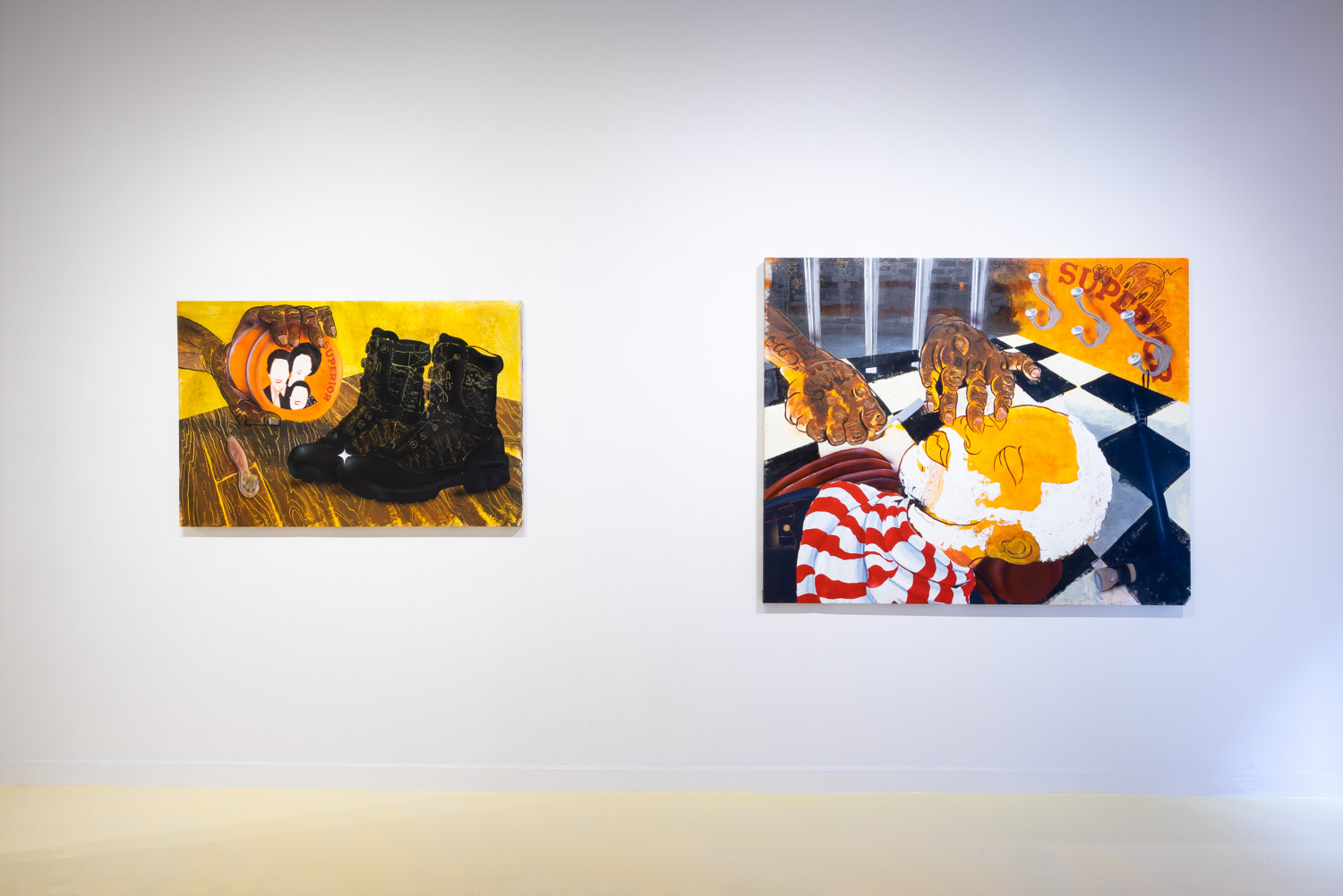
Pat Phillips
SUPERIOR, 2018
Pat Phillips
Induction Cut, 2018
Installation in Catinca Tabacaru, NY
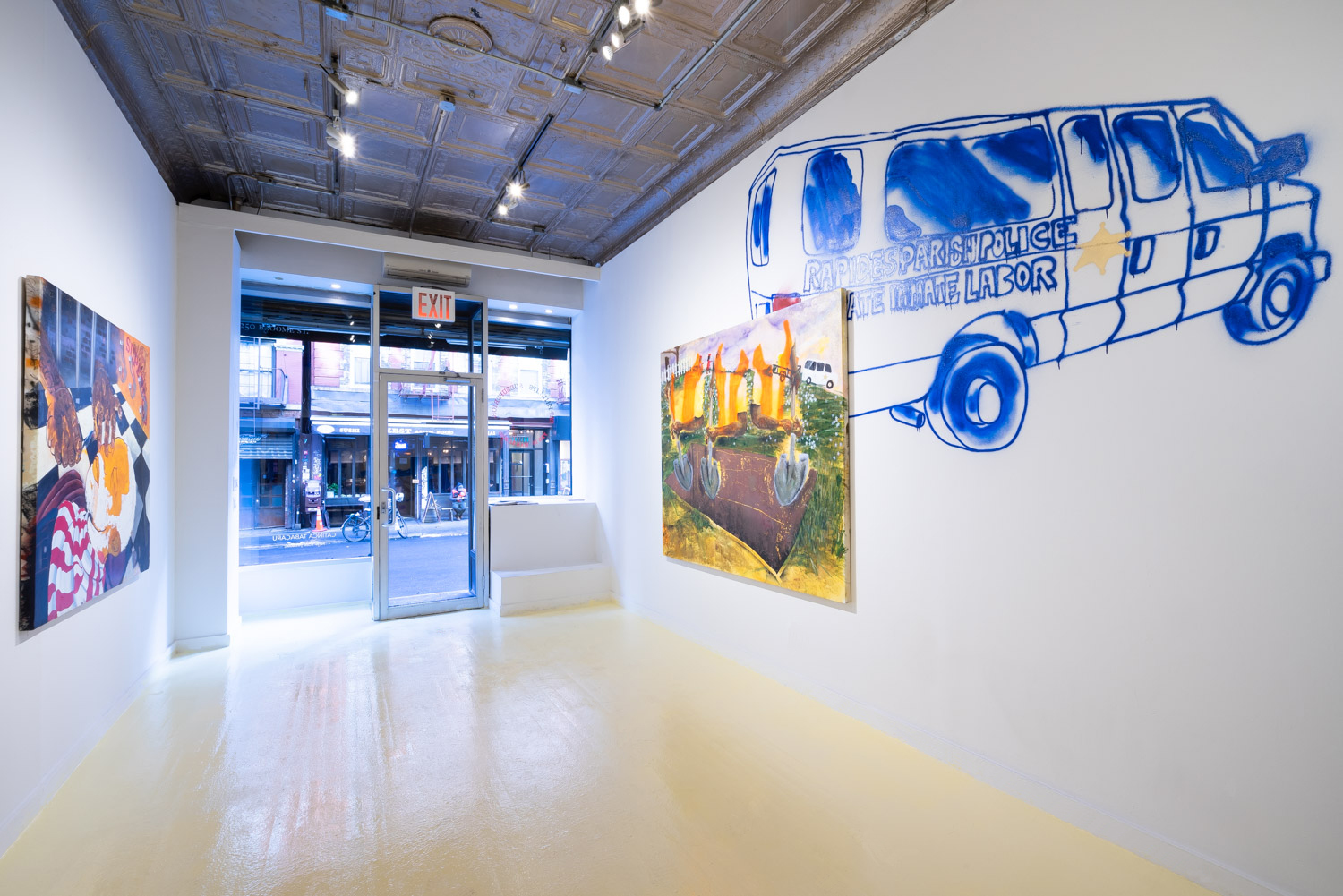
Pat Phillips
SubSuperior, 2019
Installation in Catinca Tabacaru, NY
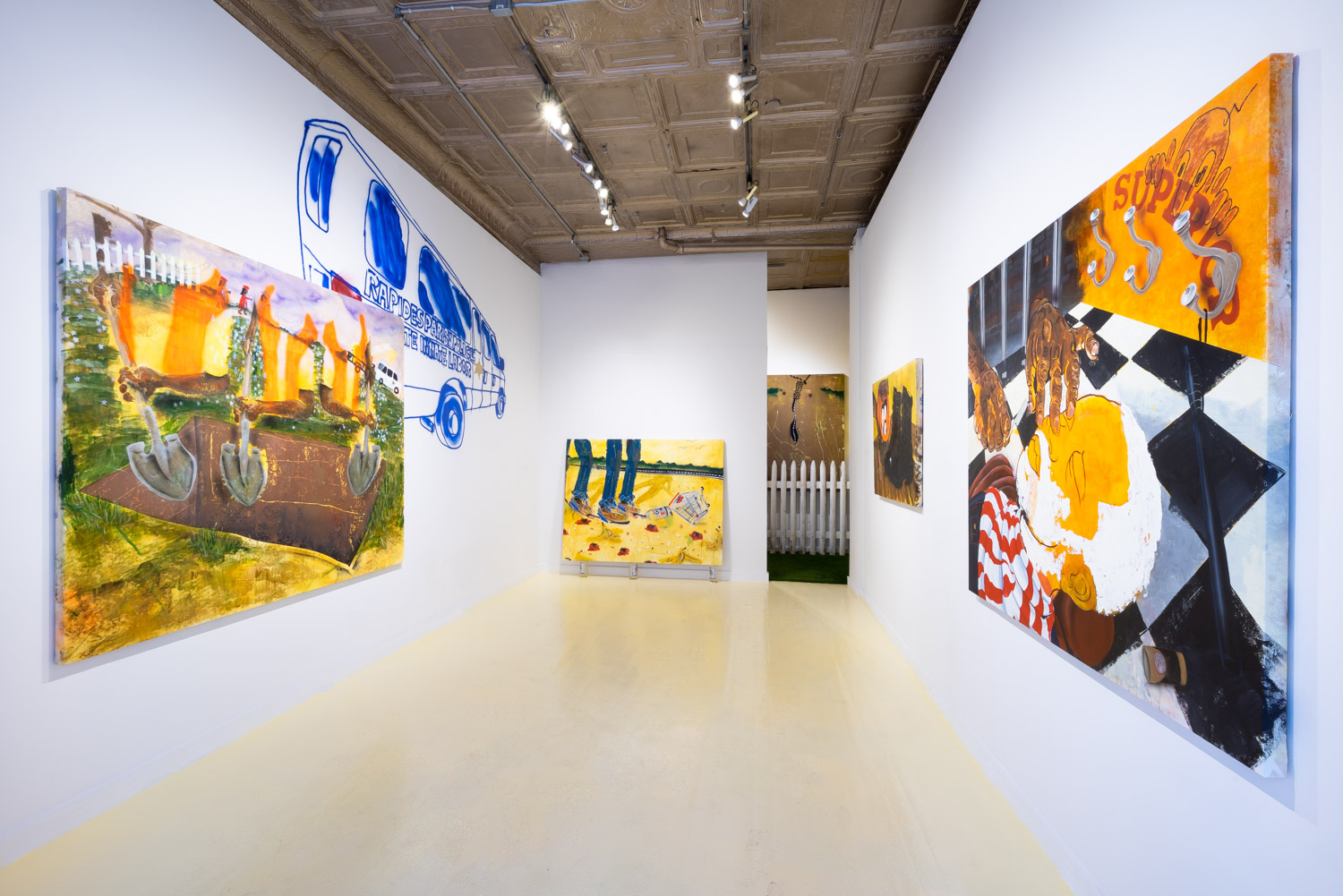
Pat Phillips
SubSuperior, 2019
Installation in Catinca Tabacaru, NY
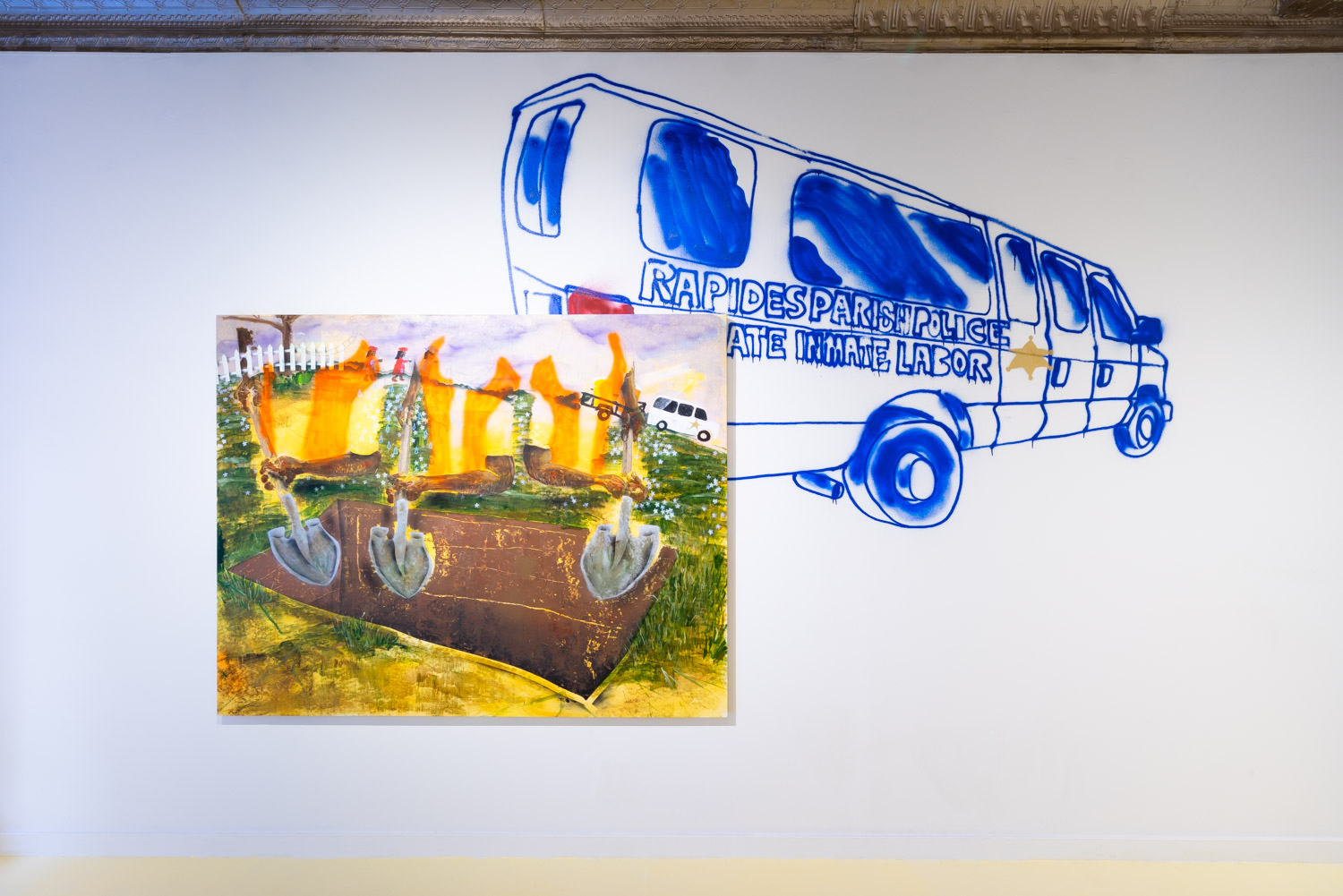
Pat Phillips
DIGGERS / The Procession, 2018
acrylic, pencil, oil pastel,
airbrush, aerosol paint on canvas
64 × 80 in
Installation in Catinca Tabacaru,NY
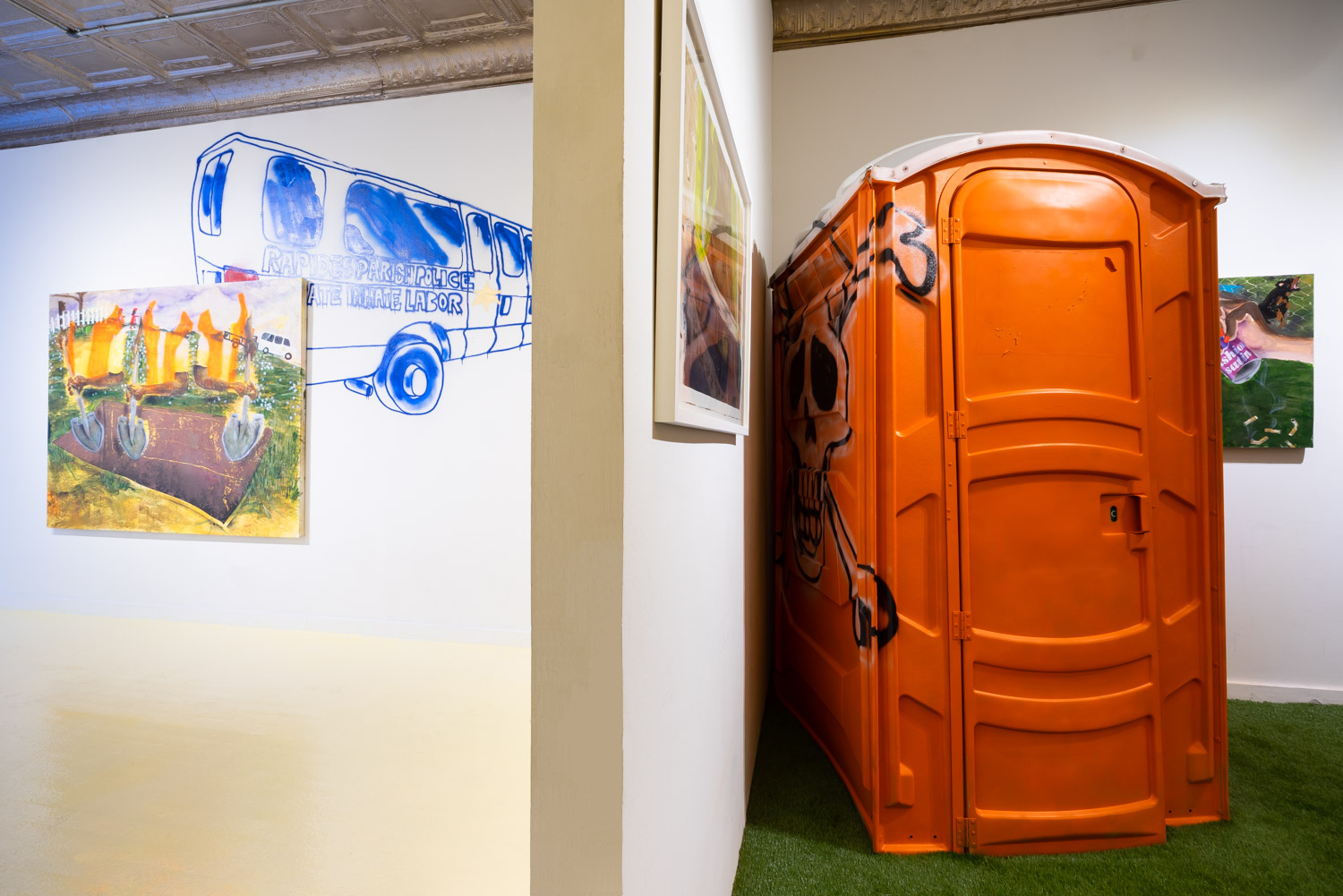
Pat Phillips
SubSuperior, 2019
Installation in Catinca Tabacaru, NY
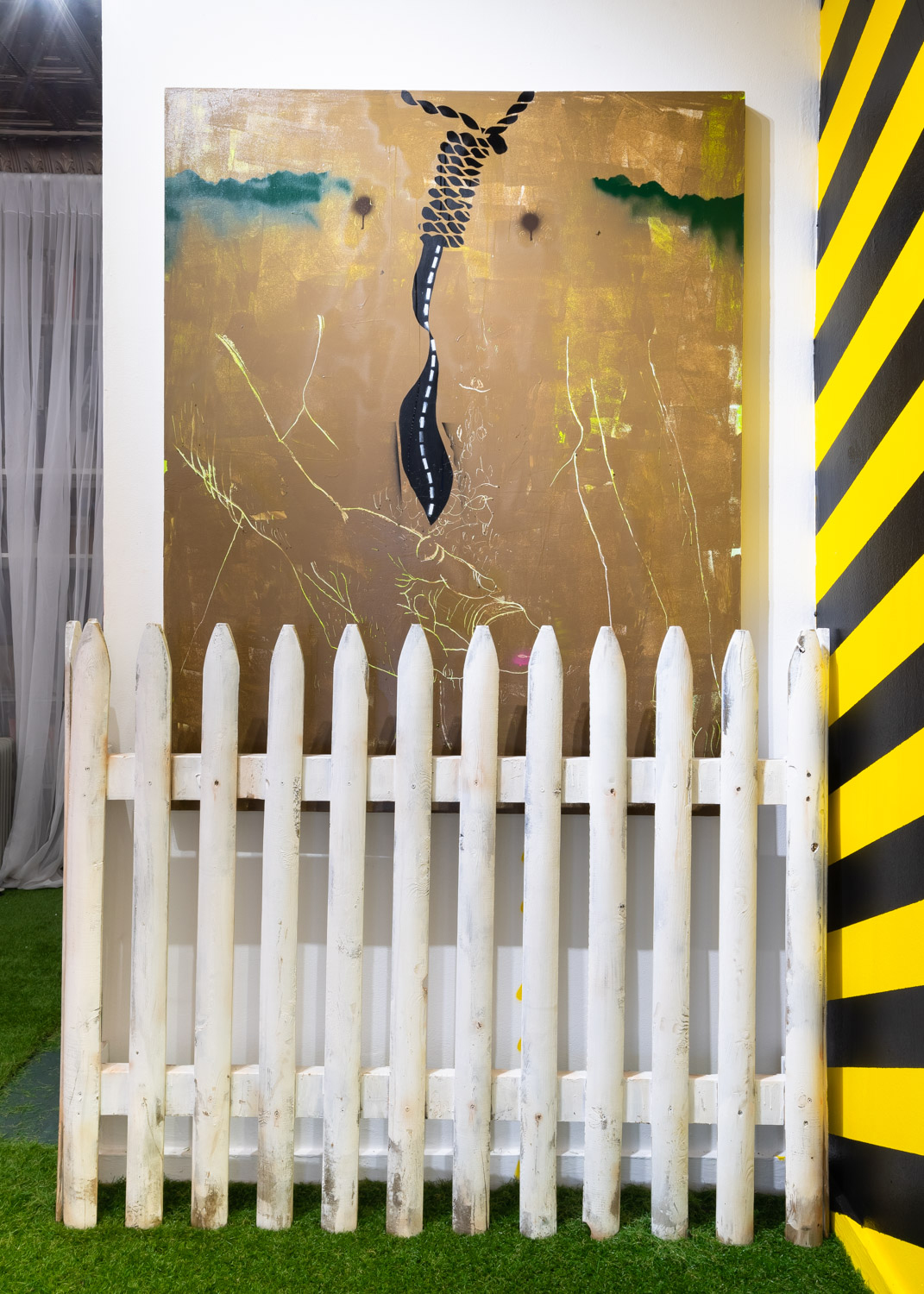
Pat Phillips
Blue Collar Man , 2018
latex house paint, reflective glass beads
aerosol paint on canvas
60 × 48 in
Installation in Catinca Tabacaru, NY
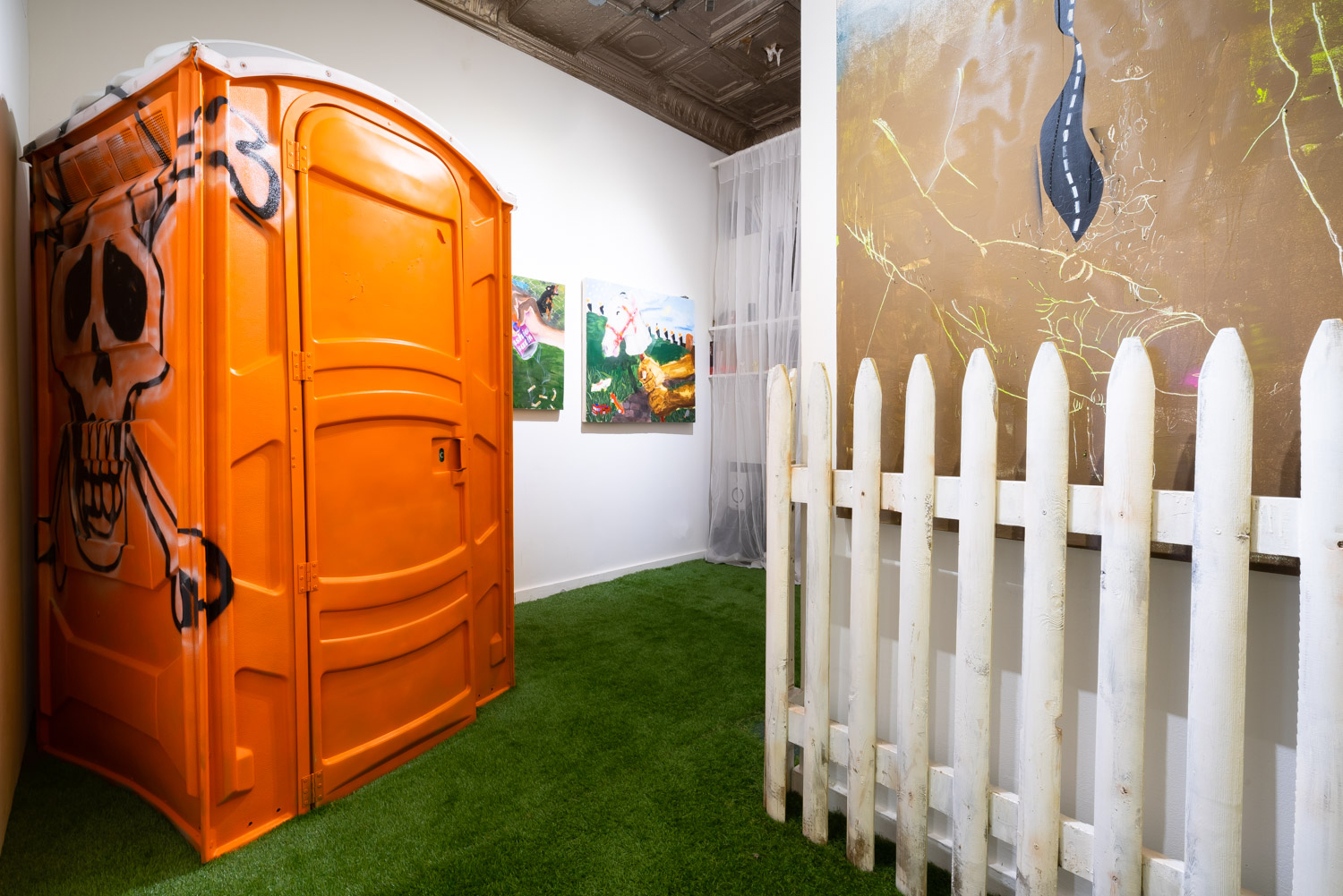
Pat Phillips
SubSuperior, 2019
Installation in Catinca Tabacaru, NY
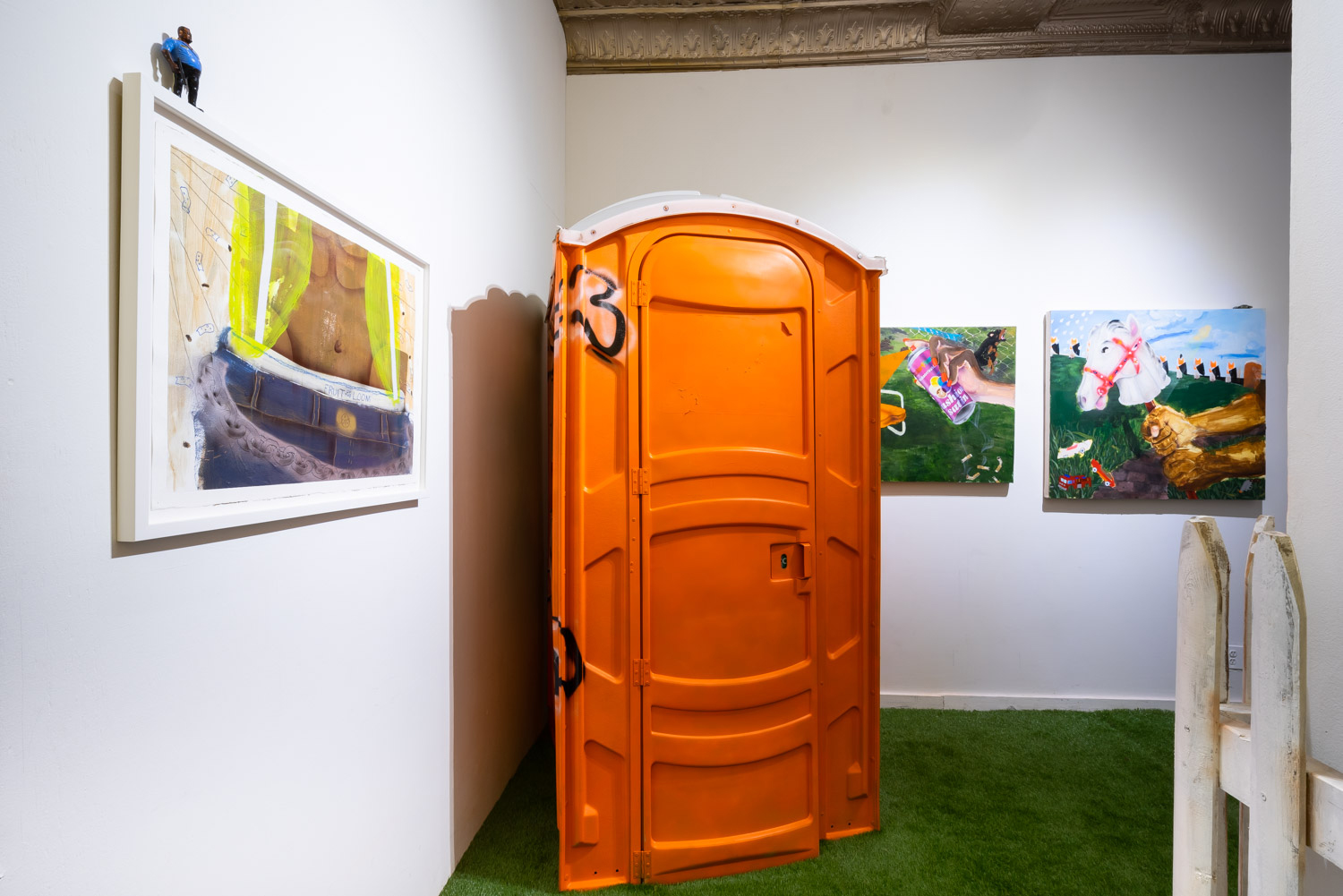
Pat Phillips
SubSuperior, 2019
Installation in Catinca Tabacaru, NY
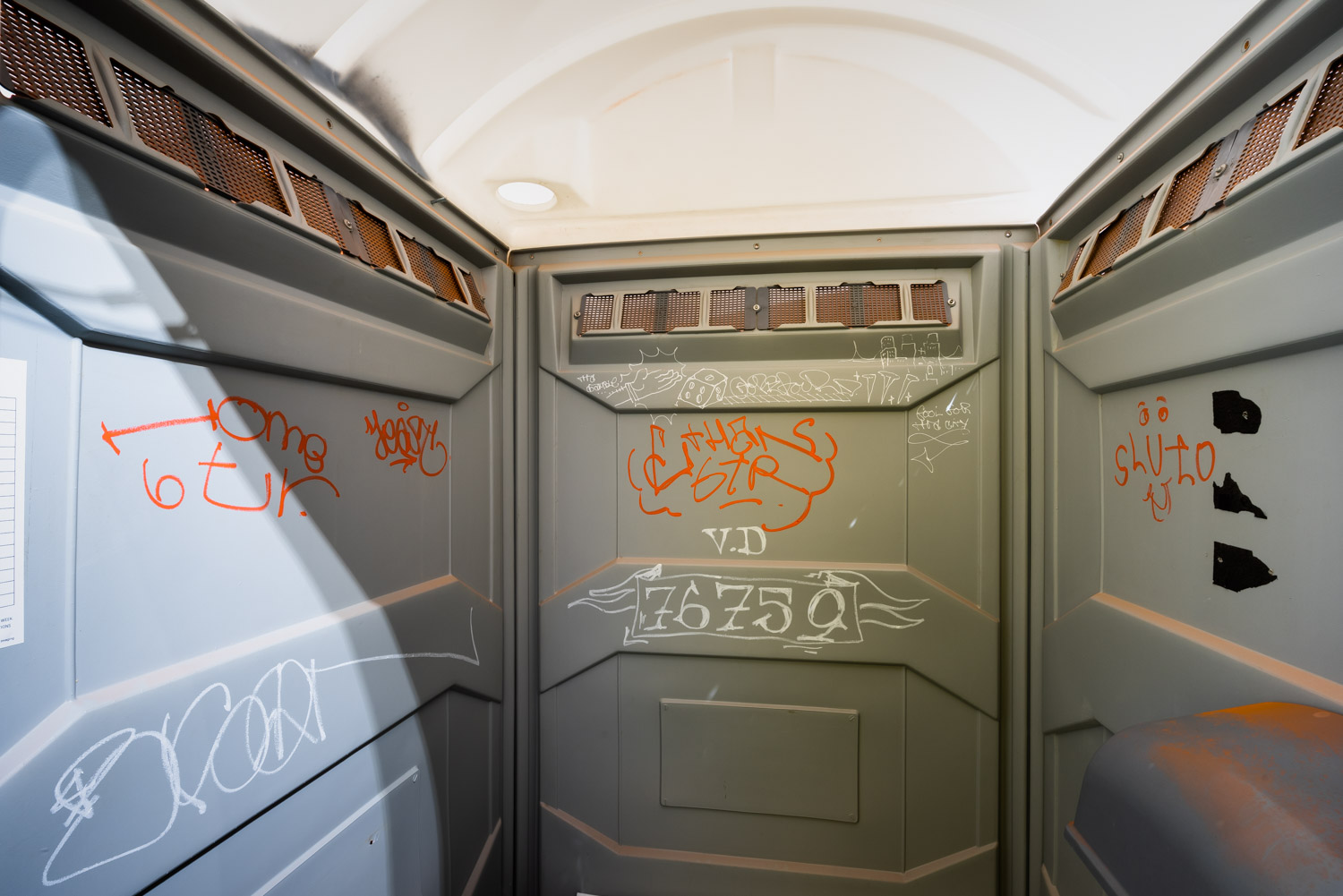
New York, NY, February 15, 2018: I grew up in a middle-class suburb among four other black families. Relatively blue collar, many of our parents worked in the few local industries in and around town. Out of the folks who looked like myself, we had a bus driver, janitor, factory worker, a Baptist preacher/lawyer, and my dad…a Corrections Officer at the local prison.
SubSuperior is a narrative exploring my own life, as well as the experiences of others stuck between racial and social classes. In an era that conveys progress, but only demonstrates marginal economic advancement, the struggles of the nuclear black family can create an illusion that things are better for everyone. Between the, “Y’all made it, so can everyone else” and the “pull yourself up by your bootstraps” mentality that is whole-heartedly regurgitated within the working middle class, many can simply overlook the systems that help maintain the standard and substandard of living.
Bounded by historical empathy and adversity, one must constantly reexamine his or her position within the Subsuperior. With limited opportunities, this can be the difference between being a sufferer within the system or those enlisted to uphold its practices.
Pat Phillips (b.1987, Lakenheath, England)
Lives and works in Louisiana
Pat Phillips spent his teenage years painting and photographing boxcars in Central Louisiana. Even as his studio practice evolved and the dialogue around his work became more complex, Phillips continued painting graffiti. He often credits these experiences as the catalyst leading to the poignant scenarios he paints into his pictures.
While Phillips’ works tell stories from his personal narrative of growing up in suburbia – those encounters and mischief – they connect ideas of culture and subculture. He touches on the social, historical, and individual, aiming to engage the viewer through mundane and sometimes satirical subject matter. His crude aesthetic merges race, landscape, and contemporary Americana into a mythological narrative exploring a black perspective. Not intending to always equate his experiences with the seriousness of his subject matter, Phillips uses a common language to examine society’s many perceptions.